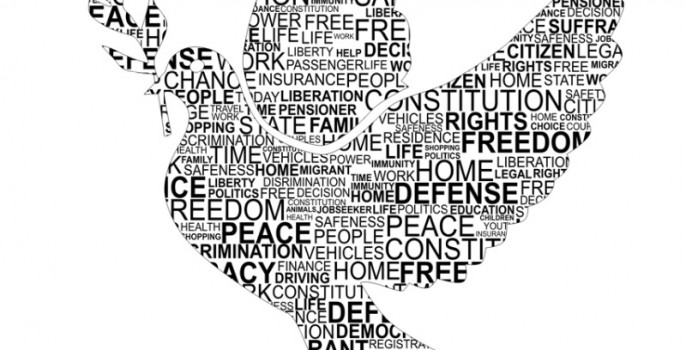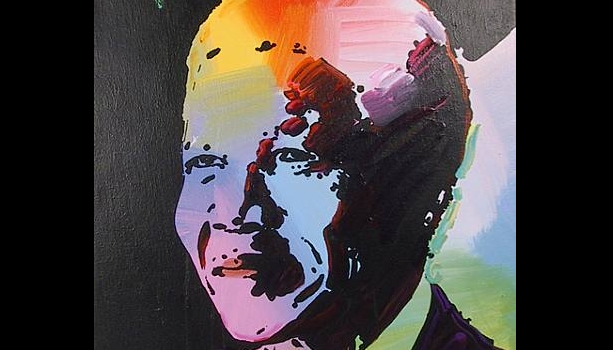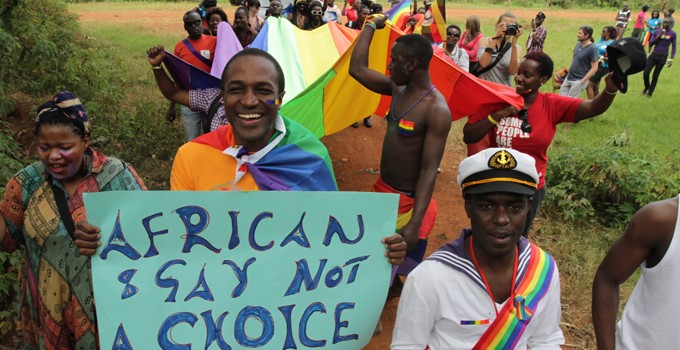December 10, 2013 – the 65th annual Human Rights Day – is set to be observed with a huge wave of commemorations across the world. An amazing diversity of people are set to participate, highlighting everything from the needs of refugees, to the accumulation of global arms, to state-sanctioned torture and disappearances, to access to life saving medicines, to violence against women, to LGBT rights.
The day will be marked by high level conferences as well as festivals, protests and other events in more than 50 countries.
As thousands are set to mark the day, however, one essential voice in the worldwide symphony of human rights will be felt missing.
The passing of the late South African freedom fighter and global icon for anti-imperialist struggle, Nelson Mandela, is sure to cast both a shadow and a guiding light over this year’s commemorations – urging reflection on how far we have left to go, to ensure universal human rights, equality and freedom for all.
December 10, 2013, also marks the 20th anniversary of Mandela’s award of the Nobel Peace Prize, for leading South Africa out of apartheid and “laying the foundations for a new democratic South Africa”.
In a statement released to mark the day, United Nations Secretary-General, Ban Ki-moon, also stressed the impact of Mandela’s passing this week:
“Finally, I pay tribute to one of the great symbols of human rights of our time: Nelson Mandela, whose passing has plunged the world into sorrow but whose lifelong commitment to human dignity, equality, justice and compassion will forever remain an inspiration as we continue to build a world of all human rights for all,” he said.
Human Rights Day has been held annually since 1950 – set to mark the United Nations General Assembly’s adoption and proclamation of the Universal Declaration of Human Rights, on December 10, 1948.
The day is also cause for the award of the UN Human Rights Prize, held once every five years. The winners for 2013 include Biram Dah Abeid of Mauritania, a son of freed slaves and anti-slavery campaigner, Liisa Kauppinen of Finland, President emeritus of the World Federation of the Deaf, and Malala Yousafzai, the Pakistani schoolgirl who was shot by the Taliban for attending classes, and who has become a renowned activist for education.
At the UN headquarters in New York City, hundreds of government and civil society representatives, activists and others will be gathering today for series of events to mark the day, including the prize giving.
LGBT rights advocates will also be meeting for an international Human Rights Day celebration at the United Nations, focusing on combatting homophobia, transphobia, and imposed gender binaries in sports with activists, sports stars and key UN representatives participating.
To mark the day, the UN LGBT rights campaign Free & Equal, has also released a new short video ‘A history of LGBT rights at the UN’, which you can view here:
More resources about the Human Rights Day 2013 can be found at the UN page here, whilst you can Follow the day on Twitter via the hashtags #HRD, #HRD2013, and #UNRightsAt20.
And here, are excerpts from Nelson Mandela’s acceptance speech for the Nobel Peace Prize – 20 years ago today.
“It will not be presumptuous of us if we also add, among our predecessors, the name of another outstanding Nobel Peace Prize winner, the late African-American statesman and internationalist, the Rev Martin Luther King Jr.
He, too, grappled with and died in the effort to make a contribution to the just solution of the same great issues of the day which we have had to face as South Africans.
We speak here of the challenge of the dichotomies of war and peace, violence and non-violence, racism and human dignity, oppression and repression and liberty and human rights, poverty and freedom from want.
We stand here today as nothing more than a representative of the millions of our people who dared to rise up against a social system whose very essence is war, violence, racism, oppression, repression and the impoverishment of an entire people…
Let it never be said by future generations that indifference, cynicism or selfishness made us fail to live up to the ideals of humanism which the Nobel Peace Prize encapsulates.
Let the strivings of us all, prove Martin Luther King Jr to have been correct, when he said that humanity can no longer be tragically bound to the starless midnight of racism and war.
Let the efforts of us all, prove that he was not a mere dreamer when he spoke of the beauty of genuine brotherhood and peace being more precious than diamonds or silver or gold.
Let a new age dawn!
Thank you.”



